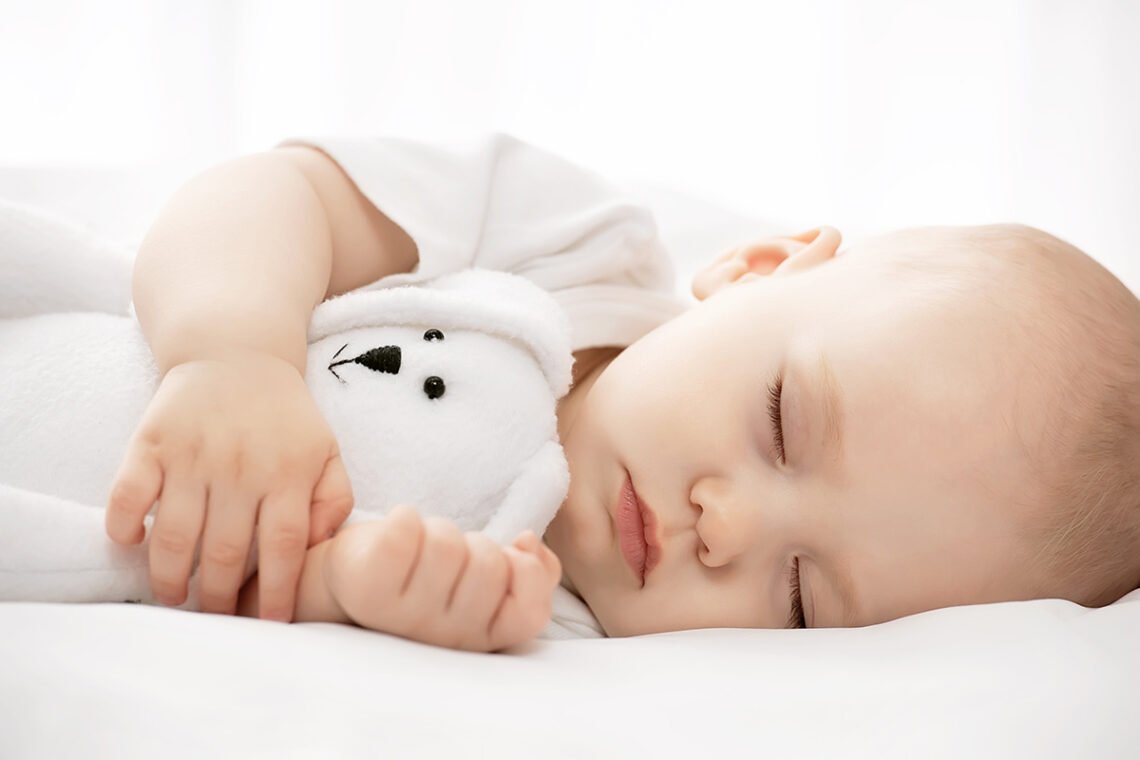How do make babies fall asleep when it’s bedtime or when they wake up during the night?
For many parents, the first weeks and months of a baby’s life are full of emotions and happiness but also of great fatigue because caring for the baby can absorb a lot of energy (without forgetting that the mother may need rest or recovery after delivery. ).
For a few months, an old baby sleeps on average 18 to 20 hours a day. Around 12 months the baby sleeps about 14-15 hours a day to get about 12 hours of sleep around 3 years.
Already from the first weeks of life, the baby may not be able to fall asleep for several reasons: he may be very tired or have slept too much during the day, he may have been stimulated too much by sounds and lights before bedtime or he cries because he is bothered by a colic intestinal tract of the infant.
Changes in family routines and new stages of psycho-motor development can also disturb the baby’s sleep with difficulty falling asleep and awakening during the night.
The birth of a baby is also the time for parents to create new routines that allow time to get to know their baby, listen to him and learn to understand his needs by giving him all the attention he needs.
5 Practical Tips To Make Babies Fall Asleep

Here are 5 practical tips from Beberoyal to help babies fall asleep, sleep better and reduce the possibility of waking up at night.
We Facilitate Physical Contact
Physical contact even skin-to-skin reassures babies, has a calming effect, and helps to relax them before bedtime.
Let us always remember this without the fear of “giving up”, because physical contact responds to the infant’s primary and natural need to feel protected and loved.
Let’s Establish A Bedtime Routine
The daily routine helps children to mark the times of the day and reassures them.
Even if the child is still very young, we can establish a routine before bed that can include a bath, a relaxing massage, reading a story in a relaxing tone of voice and without too much emphasis, moments of cuddling in the arms of the parents with the Doudou and your favorite soother.
Let’s Choose A Good Mattress
A good mattress (and a good bed) are essential not only for good sleep but also to facilitate the relaxation and sleep of the child.
From birth, let’s make sure that the cot mattress is orthopedic and of excellent quality, designed specifically for newborns, and made with safe and breathable materials.
When the child is a little older, the mattress can be placed on a Montessori-style bed, about 20 cm from the ground to give the child the possibility of getting on and off independently without danger of falling.
A good bed with wooden slats offers the correct support to the mattress and therefore also to the back and neck, promoting relaxation and good sleep.
We Avoid Covering The Baby Too Much
The protective instinct can lead us to cover the baby too much fearing that he may feel cold at night.
Excessive clothing compared to the temperature in the bedroom can annoy the child and make him wake up during the night, considering that if he is very young he is obviously not able to undress on his own or to uncover himself. The ideal temperature of the environment in which the child sleeps should be kept between 18 and 20 degrees centigrade (as indicated by the Ministry of Health).
Co-Sleeping To Sleep Next To The Baby

Co -sleeping can be a solution to keeping the baby close to them safely at night. The cots for co-sleeping are fixed next to the parent’s bed and facilitate the care of the baby during the first months of life: the mother can breastfeed him at night comfortably without having to get up to pick him up and the closeness reassures the baby of parents.
Read Also: How Do You Give Your Baby The First Bath?










